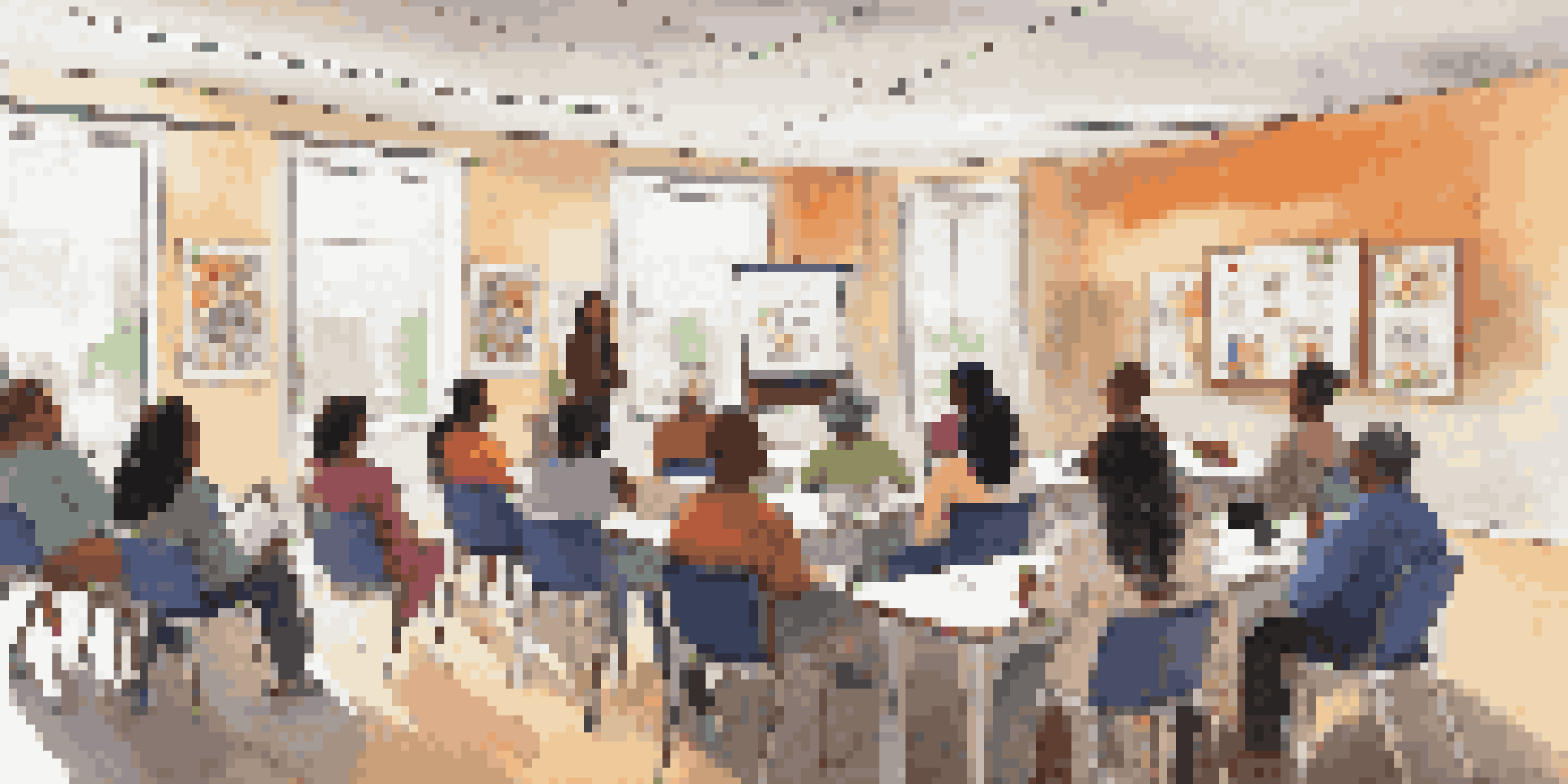Building Community Capacity for Sustainable Health Resources

Understanding Community Capacity in Health Resources
Community capacity refers to the collective abilities and resources that a community can mobilize to address its health needs. This includes not only the physical resources, like clinics and hospitals, but also the human resources, such as trained volunteers and health professionals. Strengthening this capacity is crucial for creating a sustainable health infrastructure that can adapt to changing needs over time.
Identifying Local Health Needs through Engagement
The first step in building community capacity is identifying the specific health needs of the community. This can be achieved through surveys, focus groups, and discussions with local leaders. Engaging community members ensures that the health initiatives developed are relevant and tailored to their unique challenges, fostering a sense of ownership and accountability.
Creating Partnerships for Resource Sharing
Building partnerships between local organizations, government agencies, and healthcare providers can significantly enhance resource sharing. For instance, a local school might collaborate with a nearby health clinic to provide health education workshops. These partnerships not only pool resources but also leverage diverse expertise and networks, making health initiatives more robust.
Training and Empowering Community Members
Training local residents as health advocates or peer educators empowers them to take charge of their community's health. Workshops and training programs can equip these individuals with the necessary skills to educate their peers about health issues. This grassroots approach not only builds capacity but also fosters resilience, as community members learn to support each other.
Utilizing Technology for Health Communication
In today's digital age, technology plays a vital role in health communication. Community organizations can use social media platforms to disseminate health information quickly and effectively. By creating online groups or forums, community members can share experiences, ask questions, and access resources, making health support more accessible.
Evaluating and Adapting Health Programs
Regular evaluation of health programs is essential to understand their impact and identify areas for improvement. By collecting feedback from participants and analyzing health outcomes, communities can adapt their strategies to better meet their needs. This ongoing evaluation creates a cycle of learning that is crucial for sustained health improvements.
Sustaining Community Efforts Through Funding
Sustainable health resources often rely on securing funding from various sources, including grants, donations, and local government support. Communities should actively seek out opportunities for funding to ensure their programs can continue long-term. By demonstrating the effectiveness of their initiatives, communities can build a compelling case to attract ongoing investment.
Celebrating Community Achievements and Building Morale
Celebrating small wins and achievements can significantly boost community morale. Recognizing the efforts of volunteers, healthcare workers, and community members fosters a sense of pride and encourages continued participation. These celebrations not only acknowledge hard work but also inspire future initiatives, creating a positive feedback loop of engagement and success.